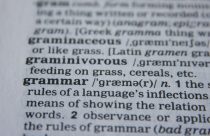How to Deal With the Dominance of English in Academic Publishing

The prevalence of the English language in modern academic research is more recent than we might assume. This article is specially written on Science Research Writing for Non-Native Speakers of English across the globe.
Native or Non-Native: Historical Anomaly
According to Slate magazine: “As recently as the 1960s, some 40 percent of scientific literature was published in French, German, or Russian. Taxonomy has a Latin naming system, and astronomy is peppered with Arabic- and Persian-named starts—reminders of places where scientific prestige was once concentrated.”
There is still an undeniable dominance of English in science, commerce, and politics. But equally asserting is the fact that only 5 percent of the world’s population are native English speakers.
The question arises as to why non-English speaking researchers must translate their work into English to meet the needs of 95 percent of the world who speak it as a second language anyway?
Science First or Economics First?
For budget-conscious researchers, the costs of translation into multiple languages is sometimes hard to justify. The more cost-effective and, to be blunt, a manageable solution is to stick with English and let the ESL readers figure out how to translate it into their local language.
Such experience is often unfairly criticized as being marginally xenophobic. Scientific research claims to benefit the world, so why is so little attention paid to ensuring that the world can benefit from reading about it?
Does Translation Place an Additional Burden?
With the growth of local open access journals in non-English languages, the problem of availability of translated research work may soon be addressed. But the traditional journals continue to publish in English and the local journals will not be able to compete with their citation volumes and corresponding rankings.
On that basis, ESL researchers seem to have no other option than to face the burden of learning a second language—to a level of sophistication and competence to where the scientific nuance of their research can be fully translated. Tourist language courses just won’t do.
Find Solutions First, Debate Later
The argument for the dominance of English in Science may now look weak in the face of global demographics, but the strength of the infrastructure remains undamaged.
The most highly ranked and prestigious journals have developed their positions over time, and their perceived importance is unlikely to be overturned anytime soon.
Open access journals promise lower operating costs that should make country-specific journals more viable, but they will be too small to challenge the prestige of the so-called “legacy” journals.
Machine translation options such as Google Translate are still too rudimentary to be considered a viable option for the translation of online research journals that use very specific terminology. This leaves a English translation service that specializes in scientific research content as the best option to broaden the reach of your article or research paper. This may seem unfair given that many authors are already embracing the processing charges required to get their work published in open access journals, but if your work is likely to be of interest to an audience that has neither the language skills nor access to the English version of your material, the additional expense should be regarded as a necessary investment. Therefore, it’s better to look for a solution, rather than debating on why there is this dominance of English in science.








